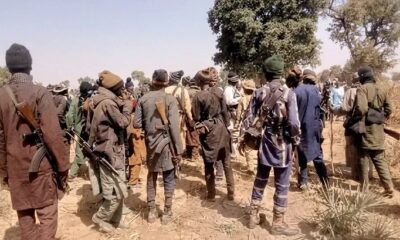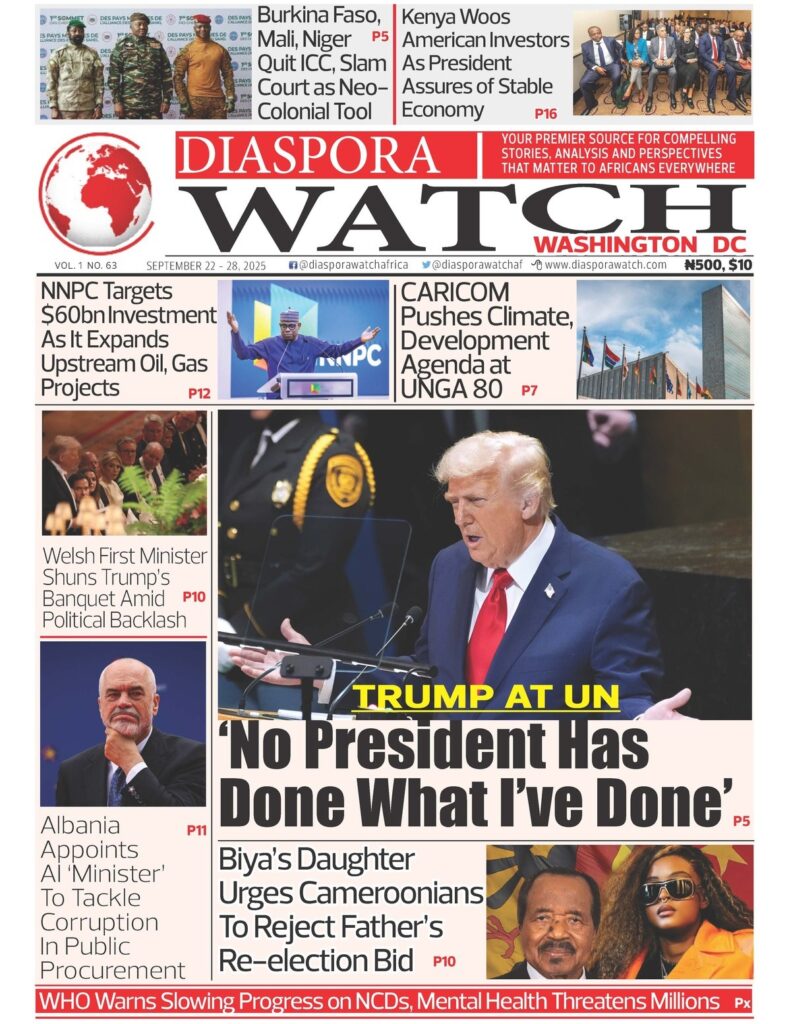Trending
Insecurity Claims 1,420 Lives, 537 Kidnapped Across Nigeria in Q1 2025
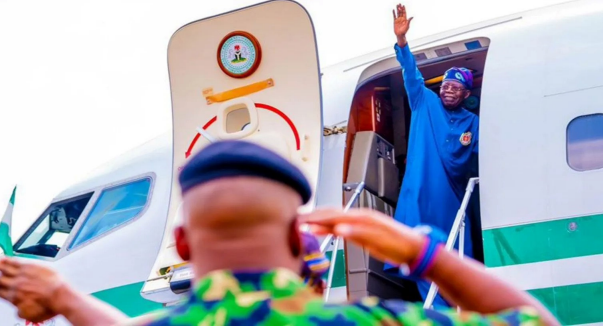
Insecurity Claims 1,420 Lives, 537 Kidnapped Across Nigeria in Q1 2025
Nigeria continues to face a deepening security crisis, with 1,420 people killed and 537 others kidnapped in various incidents across the country in the first quarter of 2025 alone. This is according to data from *HumAngle’s* March 2025 Conflict Tracker, cited by *WikkiTimes*.
The report documented 475 insecurity incidents nationwide between January and March, spanning all six geopolitical zones. However, the brunt of the violence was borne by the northern part of the country, particularly the Northwest and North-Central regions. These two zones accounted for nearly half of all recorded incidents and over 50% of the total fatalities.
### Northern Nigeria Remains Epicenter of Violence
The data paints a grim picture of the security situation in northern Nigeria. In March alone, the region recorded 243 out of 363 reported deaths. The Northwest zone reported the highest casualties, with 130 deaths, followed by the North-Central with 94 and the Northeast with 19. This accounts for nearly 67% of all fatalities nationwide for the month.
The high levels of violence in the North have been attributed to a range of factors including banditry, terrorism, communal clashes, and attacks by armed groups. States like Zamfara, Kaduna, Niger, and Borno continue to be hotspots for deadly attacks and mass abductions, with rural communities particularly vulnerable.
In addition to killings and kidnappings, the report noted a rise in displacement and destruction of property, further compounding the humanitarian crisis in affected areas.
### Southern Nigeria Also Affected
While the North remains the worst hit, insecurity is far from being a regional issue. The South also recorded significant casualties, albeit at a lower scale. In March, the South-West zone reported 52 deaths, the South-South recorded 50, and the South-East 18—bringing the total southern death toll for the month to 120.
In the southern regions, insecurity often takes the form of cult clashes, armed robbery, political violence, and occasional communal disputes. In the South-East, the activities of separatist groups and their confrontations with security agencies have continued to claim lives and destabilize communities.
### A National Crisis Without Adequate Response
Security analysts and civil society groups have repeatedly raised concerns over the federal government’s perceived lack of decisive and coordinated response to the growing insecurity. Despite increased military operations and repeated assurances from security agencies, the crisis has shown little sign of abating.
The HumAngle report underscores what many Nigerians already feel—an ongoing cycle of violence with limited accountability and inconsistent protection for civilians. It also calls into question the effectiveness of existing security strategies and the need for a more inclusive, community-driven approach to peacebuilding.
### The Human Cost
Beyond the numbers, the human cost of Nigeria’s insecurity crisis is staggering. Families are torn apart, livelihoods destroyed, and entire communities displaced. Many victims of kidnappings remain unaccounted for, with families often forced to pay ransoms amid silence from authorities.
As the country approaches the mid-year mark, the figures from the first quarter serve as a sobering reminder of the urgency with which Nigeria’s security architecture needs reform, and the importance of placing citizens’ safety at the heart of national policy.
Diaspora
Diaspora Watch Vol. 81
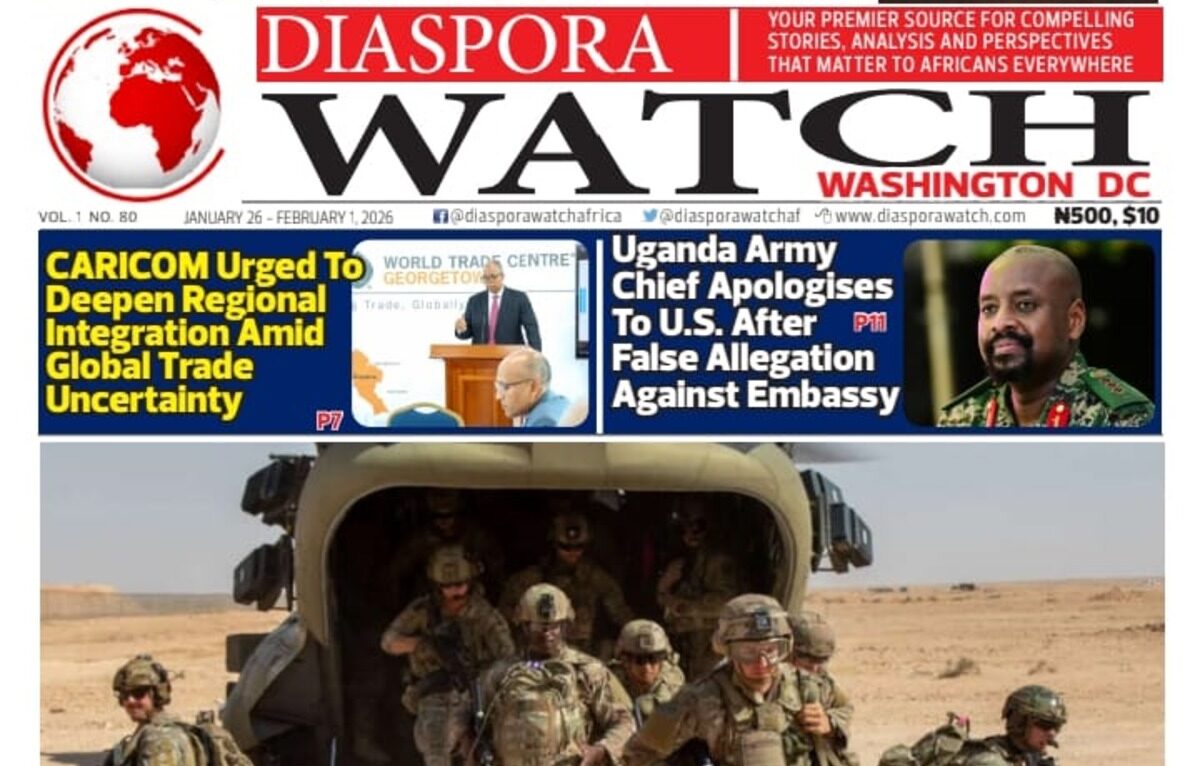
Diaspora Watch Newspaper has released its 81st edition, delivering a sharp, authoritative and globally attuned package of journalism that interrogates power, policy and influence at a critical moment in international affairs.
Diaspora Watch FREE DIGITAL VIEW: https://diasporawatch.com/3d-flip-book/diaspora-watch-vol-81/
On-Demand Print: https://www.magcloud.com/browse/issue/3259915?__r=1069759
SUBSCRIBE TO DIASPORA WATCH NOW ON THE LINK BELOW: https://diasporawatch.com/subscribe-to-diaspora-watch-newspaper/
This latest edition captures the shifting dynamics of global security, diplomacy and governance, with a lead focus on deepening U.S.–Nigeria security engagement against the backdrop of rising terror threats. The report probes the strategic calculations behind the move and what it means for regional stability, sovereignty and counter-terrorism cooperation in West Africa.
Beyond security, the edition reflects the volatility of a world in transition. From renewed uncertainty in Libya following reports surrounding Muammar Gaddafi’s son, to mounting tensions in the United States over federal immigration enforcement and public protest, Diaspora Watch situates breaking developments within their broader political and social contexts.
The newspaper also turns attention to the future, spotlighting technological innovation aimed at Africa’s digital inclusion, as well as urgent calls for stronger regional integration in the Caribbean amid global trade headwinds. Energy policy debates, evolving diplomatic relations between Africa and the United States, and the deepening humanitarian emergency in the Democratic Republic of Congo are examined with clarity, balance and depth.
Rounding out the edition is a culture-driven back-page story that blends politics, celebrity and controversy, underscoring how influence and perception increasingly intersect in the global public space.
With its 81st edition, Diaspora Watch Newspaper reinforces its position as a trusted platform for diaspora-focused journalism—bold in perspective, rigorous in reporting and committed to telling Africa’s story within a rapidly changing world.
Stay connected with the world around you – read Diaspora Watch today!
Celebrating African excellence and spotlighting pressing global issues.
#DiasporaWatch #AfricaInFocus #GlobalNews #CulturalVoices #AfricanPerspective
Diaspora
Diaspora Watch Vol. 63

Diaspora Watch Unveils 63rd Edition: A Global Mirror of Power, Politics and People
Diaspora Watch Vol. 63 FREE Digital View: https://diasporawatch.com/3d-flip-book/diaspora-watch-vol-63/
On Demand Print: https://www.magcloud.com/browse/issue/3172875?__r=1069759
Subscribe to Diaspora Watch Now on the link below!!!
https://diasporawatch.com/subscribe-to-diaspora-watch-newspaper/
The 63rd edition of Diaspora Watch Newspapers has hit the stands this week, bringing readers a compelling mix of global power plays, continental shifts, economic pursuits and cultural flashpoints.
From New York to Niamey, London to Lagos, the edition offers a panoramic view of unfolding events shaping the world and Africa’s place within it.
On the cover, U.S. politics takes centre stage as President Donald Trump, addressing the United Nations, boldly declares: “No President Has Done What I’ve Done.” In a dramatic twist on African geopolitics, Burkina Faso, Mali and Niger jointly announce their withdrawal from the International Criminal Court, condemning it as a “neo-colonial tool.”
Kenya’s President turns to America’s corporate giants, assuring investors of stability in a pitch to attract capital inflows. Nigeria equally seizes the moment, with the NNPC outlining ambitious upstream oil and gas expansion plans targeting $60 billion in investment. Across the Caribbean, CARICOM leaders rally at the UNGA 80, pressing hard for climate justice and a development agenda that cannot be ignored.
Europe is not left out of the storm: the Welsh First Minister pointedly shuns Trump’s banquet, fueling political ripples back home, while in Africa, Cameroon’s political dynasty faces unusual pressure as President Biya’s daughter openly calls on citizens to reject her father’s re-election bid. Elsewhere, Albania breaks new ground with the appointment of an AI “Minister” to combat corruption in public procurement — a move being hailed as futuristic governance.
On the health front, the World Health Organization issues a sobering warning, noting that slowing progress on non-communicable diseases and mental health is putting millions at risk globally.
Sports enthusiasts will find gripping drama on the back page, where Manchester United’s crisis-hit boss lays down the gauntlet with a blunt declaration: “My way or no way.”
Diaspora
Diaspora Watch Vol. 62

Diaspora Watch 62nd Edition Is Here!
Diaspora Watch FREE Digital View: https://diasporawatch.com/3d-flip-book/diaspora-watch-vol-62/
On Demand Print: https://www.magcloud.com/browse/issue/3172869?__r=1069759
Subscribe to Diaspora Watch Now on the link below!!!
https://diasporawatch.com/subscribe-to-diaspora-watch-newspaper/
The 62nd edition of Diaspora Watch Newspapers is out, delivering a hard-hitting blend of global politics, African affairs, diplomacy, business, health, and culture, with stories that cut across continents and shape conversations.
Leading the cover is a riveting headline from London, where Donald Trump’s UK visit takes a dramatic turn as he sidesteps the brewing Mandelson–Epstein controversy, raising eyebrows in diplomatic and media circles alike.
In the Middle East, Saudi authorities have freed three Nigerian pilgrims detained over alleged drug trafficking, bringing relief to families back home. On the domestic front, Labour Party’s Peter Obi lambasts President Tinubu over plans for emergency rule in Rivers State, stoking fresh political debates.
The global economy also takes centre stage: the United Kingdom secures a massive £150 billion U.S. investment as Prime Minister Keir Starmer and Donald Trump strike a landmark tech deal. Meanwhile, South Sudan is plunged deeper into crisis as President Salva Kiir suspends his deputy, Riek Machar, and accuses him of treason.
In Asia, U.S.-China tensions flare once again as Beijing slams Nvidia with monopoly breach accusations, just as both nations resume sensitive trade talks. Public health makes headlines with the World Health Organization’s grim report of a 50% surge in global cholera deaths. From Europe, Spain introduces disaster preparedness lessons for children, a move hailed as a pioneering approach to climate resilience.
The Caribbean bloc, CARICOM, issues a firm condemnation of Israel’s strike on Qatar, insisting on respect for international law. In the energy sector, the United States oil industry struggles as job losses mount and companies slash spending amid sliding prices.
On the cultural front, Hollywood dazzles as Brad Pitt and The Studio emerge dominant at the 2025 Emmy Awards, sealing their place in entertainment history.
With fearless reportage and bold editorial framing, Diaspora Watch continues to provide the diaspora community with sharp insights and global perspectives, reinforcing its position as the voice of Africans abroad and a trusted lens on world affairs.
The 62nd edition is available now in print and digital formats.
-

 Analysis1 week ago
Analysis1 week agoNow That Nigeria Has a U.S. Ambassador-Designate, by Boniface Ihiasota
-

 Milestone3 days ago
Milestone3 days agoChief Chukwuma Johnbosco and the Making of a Purpose-Driven Leader
-

 Diplomacy1 week ago
Diplomacy1 week agoCARICOM Raises Alarm Over Political Crisis in Haiti
-
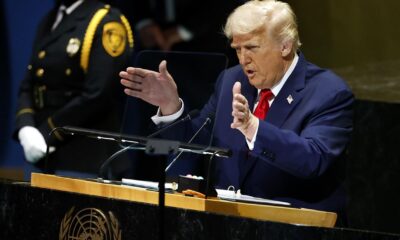
 News3 days ago
News3 days agoUS Sends Troops to Nigeria Over Rising Terror Threats
-

 Sports4 days ago
Sports4 days agoEx-Sri Lanka Star Jayasuriya Named in USA Squad for T20 World Cup
-

 Sports4 days ago
Sports4 days agoLens Edge Le Havre to Reclaim Ligue 1 Top Spot


